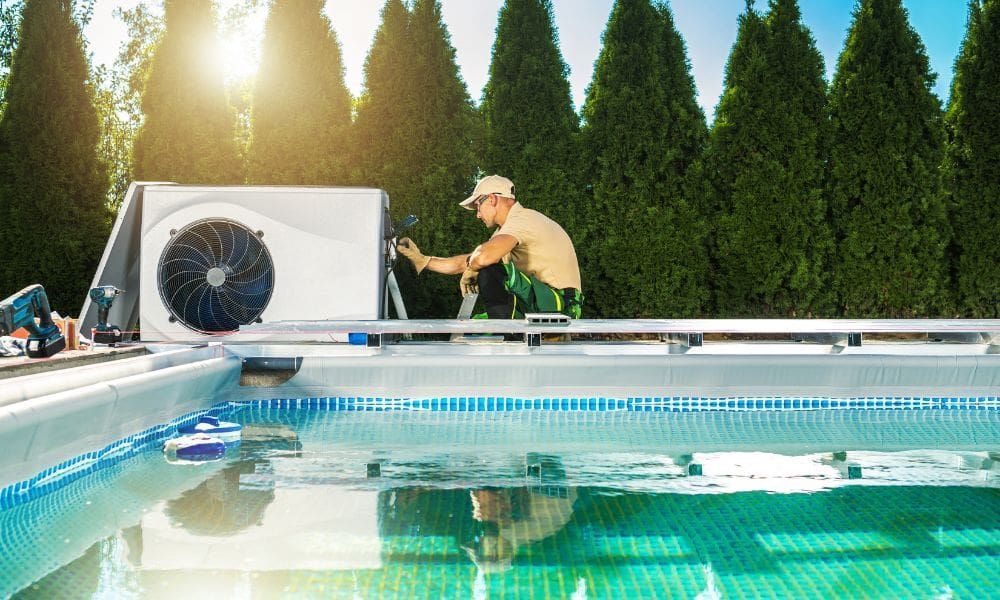Top Signs Your Swimming Pool Heater Needs Repair (And How to Fix It)

Keeping your pool at a comfortable temperature is crucial for enjoying your swimming experience year-round. However, swimming pool heaters, like any machine, can run into issues that require your attention. Knowing the signs that your pool heater needs a repair can help you address problems before they worsen, saving you money and extending the life of your heater. This guide will help you identify common pool heater issues and suggest practical solutions to keep your pool inviting and ready for use.
Understanding Your Pool Heater
A swimming pool heater is key to extending the pool season beyond the warm months, especially in areas with cooler climates. When working correctly, these heaters maintain your pool at a pleasant temperature regardless of the weather. However, when they malfunction, it can lead to discomfort and unexpected costs. Early detection of potential problems can lead to quick fixes that prevent long-term damage.
Why Pool Heater Maintenance is Critica
Regular maintenance and timely repairs of your pool heater ensure efficient performance and energy use. It also helps in detecting minor issues before they become major, potentially expensive problems. By understanding the common signs of heater malfunction, you can take proactive steps to ensure your pool remains a warm and welcoming oasis.
Common Signs of Pool Heater Trouble
Here are several indicators that your swimming pool heater might need some professional attention:
1. Insufficient Heating
If your pool water remains chilly despite running the heater, it's a clear sign something isn't right. Causes can range from minor issues like incorrect thermostat settings to more severe problems such as a malfunctioning heat exchanger or blocked pipes.
Quick Fix: Verify the thermostat is set correctly. If adjustments to the thermostat don’t resolve the issue, consult a professional to examine your heater's internal components for any signs of malfunction.
2. Unusual Noises
Any out-of-the-ordinary sounds—such as grinding, whistling, or popping—can indicate trouble. These noises suggest mechanical issues that, if ignored, could lead to more severe damage or even complete heater failure.
Quick Fix: Identify the type of noise to guide your troubleshooting. For example, a hissing noise might indicate a gas leak, while rattling could suggest loose internal components. In many cases, professional diagnosis and repair are necessary to resolve these issues safely.
3. High Energy Bills
An unexplained rise in your energy bills can be a symptom of an inefficient pool heater. When a heater is in disrepair, it often works harder to maintain the desired temperature, using more energy and thus increasing costs.
Quick Fix: Ensure regular maintenance like cleaning the filters and checking for internal blockages. If high bills persist, a more comprehensive energy audit by a professional might be needed to pinpoint less obvious inefficiencies.
4. Pilot Light Problems
For gas heaters, the pilot light should burn steadily. Frequent outages or difficulty lighting the pilot can indicate a deeper issue, such as a faulty thermocouple or a problem with the gas supply.
Quick Fix: Check for drafts that could be affecting the pilot light. If the problem continues, it might be a sign of a more significant issue requiring professional repair.
5. Water Leaks
Leaks can cause not only water waste but also significant damage to the surrounding area. They can stem from a variety of issues, including cracked pipes, loose connections, or corroded parts.
Quick Fix: Tighten any loose connections and replace worn-out parts. For internal leaks or if you are unsure of the source, it's best to call in a professional to prevent further damage.
6. Heater Cycles Off Too Frequently
If your pool heater turns off more often than usual without heating the pool to the desired temperature, it could be short cycling. This might be due to an oversized heater, a malfunctioning thermostat, or improper installation.
Quick Fix: Check the thermostat and reset it if necessary. If the issue persists, the heater may need recalibration or more in-depth servicing from a professional.
7. Rust and Corrosion
Visible signs of rust or corrosion on the heater or its components can be indicative of long-term water damage or chemical imbalances in the pool. These issues can significantly shorten the life of your pool heater.
Quick Fix: Regularly check the chemical balance of your pool water to ensure it is within the recommended limits. Clean and inspect your heater periodically for any signs of wear and treat them promptly to prevent further deterioration.
Conclusion: Ensuring Longevity and Efficiency
Recognizing these signs and addressing them will not only extend the life of your swimming pool heater but also enhance your swimming experience. For reliable and professional pool heater repair services, turn to Aqua Clear Pool Services. Our team of experts provides comprehensive pool solutions, including maintenance, repairs, and installations, ensuring your pool is in top condition throughout the year.
Contact Us
For more information or to schedule a service, please contact Aqua Clear Pool Services at info@aquaclearpoolservices.com or call us at 858-251-4151. We proudly serve Lakeside, El Cajon, and Santee, CA, offering a range of services from basic pool care to complex equipment installations.
Remember, a well-maintained pool heater not only provides comfort but also safety, ensuring every swim is a pleasure, no matter the season.
Pool Services
Quick Links


